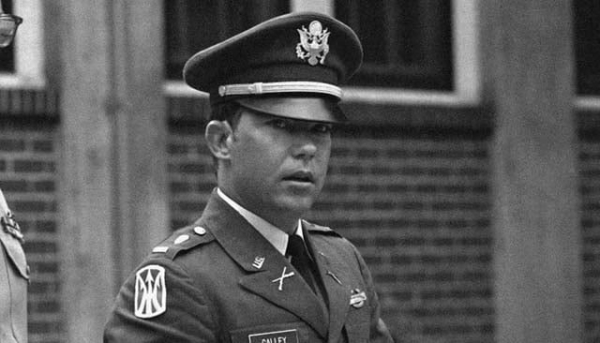William Calley, a former US Army lieutenant convicted of war crimes in a Vietnam-era tragedy called the My Lai massacre, has died at age 80, a US newspaper reported Monday.
The Washington Post said Calley died on April 28 in Gainesville, Florida, but his death had not been publicized until a recent public records search.
In 1971, Calley became the only member of the US Army found guilty of war crimes over the My Lai massacre, one of the darkest chapters in US military history.
It occurred on March 16, 1968, when Calley’s brigade entered the village of My Lai based on faulty intelligence that enemy Viet Cong soldiers were disguised among the civilians there.
Calley, age 24 at the time, ordered soldiers to kill villagers even though they had found no evidence of enemy combatants.
The massacre involved the torture, rape and slaughter of hundreds of innocent Vietnamese.
The US Army covered up the events at My Lai for more than a year afterward.
The death toll of the massacre remains disputed, but US estimates place the number of dead between 347 and 504 unarmed civilians, most of whom were women, children or elderly men.
Pham Thanh Cong, a survivor of the massacre, expressed regret that Calley never returned to Vietnam before his death.
“Many other Americans returned to Son My,” the 67-year-old told AFP, using the Vietnamese term for the village.
“They came to pray, to ask for forgiveness from the souls of the dead, but Calley… he never came back.”
Cong was just 11 when his family was killed in front of him by American troops.
He was huddled with his mother, brother and sister in a bunker in his home when soldiers lobbed grenades at the family and shot at them with M-16s.
“He caused the death of many civilians, including my family,” said Cong, who ran a war memorial for the dead until his retirement.
“I regret that he did not return to Son My, witness its revival and the development of its people.”
– Convicted of murder –
Calley was later the subject of a high-profile court martial, during which he said he had been following the orders of his superiors.
Although 12 other military officers were charged with crimes related to the massacre — including the subsequent cover-up — all were eventually acquitted of criminal charges.
Calley was ultimately convicted of murdering 22 noncombatants and was sentenced to hard labour for life. But his sentence was commuted days later by then-President Richard Nixon and he was eventually released after serving three years of house arrest.
After his release, Calley settled in Columbus, Georgia, where he remained in obscurity for most of his life.
In 2009, a local newspaper reported on a speech Calley gave at the Kiwanis Club of Greater Columbus, during which he apologised for his role in the massacre.
“There is not a day that goes by that I do not feel remorse for what happened that day in My Lai,” Calley said.
“I feel remorse for the Vietnamese who were killed, for their families, for the American soldiers involved and their families. I am very sorry.”
AFP

